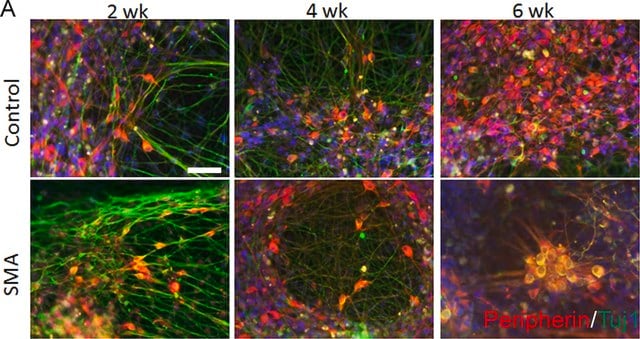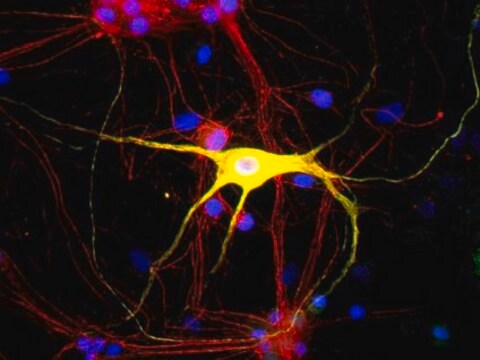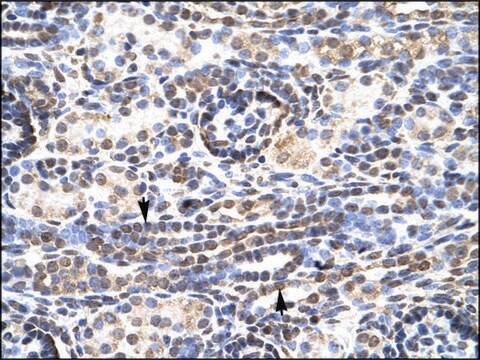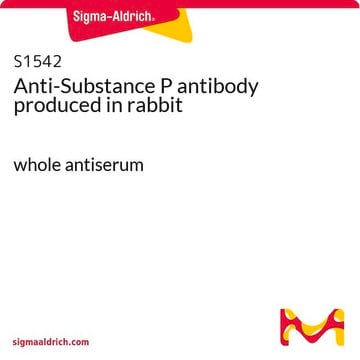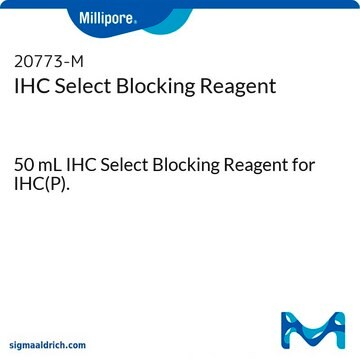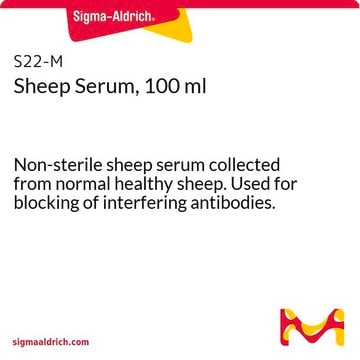P0072
Anti-phospho-PDCD4 (pSer67) antibody produced in rabbit
~1 mg/mL, affinity isolated antibody, buffered aqueous solution
Sinônimo(s):
Anti-Neoplastic transformation inhibitor, Anti-Nuclear antigen H731, Anti-Programmed cell death 4, Anti-Protein 197/15a
Selecione um tamanho
Selecione um tamanho
About This Item
Produtos recomendados
fonte biológica
rabbit
conjugado
unconjugated
forma do anticorpo
affinity isolated antibody
tipo de produto de anticorpo
primary antibodies
clone
polyclonal
Formulário
buffered aqueous solution
peso molecular
antigen ~51 kDa
reatividade de espécies
rat (predicted), mouse (predicted), human
concentração
~1 mg/mL
técnica(s)
immunoprecipitation (IP): 5-10 μg using lysates of HEK-293T cells starved for 48 hours and then treated with 20% FCS
western blot: 1-2 μg/mL using lystes of HEK-293T cells starved for 48 hours and then treated with 20% FCS
nº de adesão UniProt
Condições de expedição
dry ice
temperatura de armazenamento
−20°C
modificação pós-traducional do alvo
phosphorylation (pSer67)
Informações sobre genes
human ... PDCD4(27250) , SELP(6403)
mouse ... Pdcd4(18569)
Descrição geral
Aplicação
Ações bioquímicas/fisiológicas
forma física
Exoneração de responsabilidade
Não está encontrando o produto certo?
Experimente o nosso Ferramenta de seleção de produtos.
produto relacionado
Código de classe de armazenamento
10 - Combustible liquids
Ponto de fulgor (°F)
Not applicable
Ponto de fulgor (°C)
Not applicable
Equipamento de proteção individual
Eyeshields, Gloves, multi-purpose combination respirator cartridge (US)
Escolha uma das versões mais recentes:
Certificados de análise (COA)
Não está vendo a versão correta?
Se precisar de uma versão específica, você pode procurar um certificado específico pelo número do lote ou da remessa.
Já possui este produto?
Encontre a documentação dos produtos que você adquiriu recentemente na biblioteca de documentos.
Active Filters
Nossa equipe de cientistas tem experiência em todas as áreas de pesquisa, incluindo Life Sciences, ciência de materiais, síntese química, cromatografia, química analítica e muitas outras.
Entre em contato com a assistência técnica